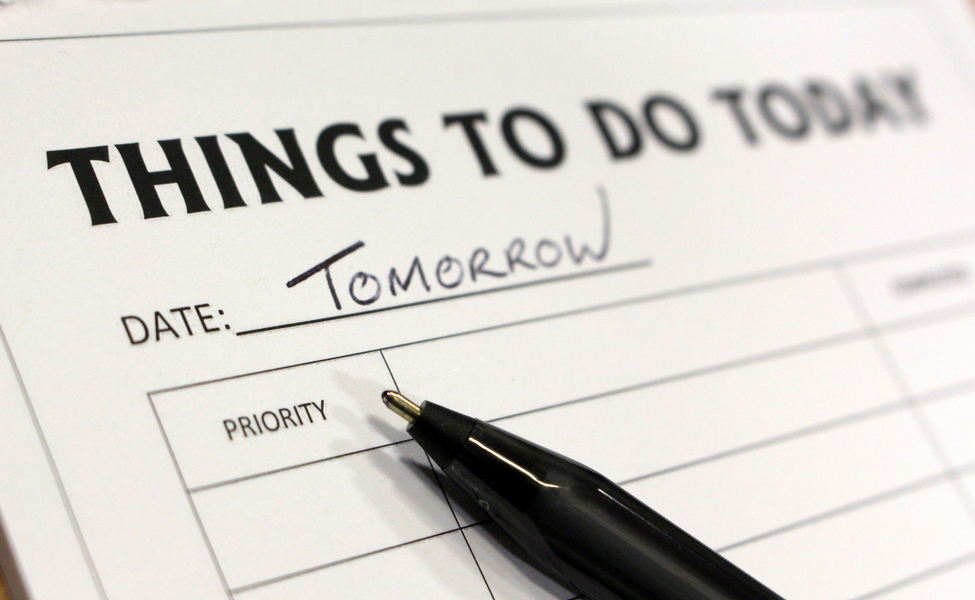How do you deal with procrastination?

Shutterstock.com.
There’s a big project listed on your calendar with a due date that was circled months ago. Now time’s running out. You’ve barely started and would rather be undergoing a root canal without anesthesia.
How do you put aside the procrastination and finish on time or sooner?
Majorie Silver, writing at the blog Best Practices for Legal Education, gives suggestions from her presentation at the Suffolk Law School conference “Integrating Positive Psychology into Legal Education.” Silver suggests adopting the Pomodoro Technique of time management:
- Commit to spending 25 minutes working as intensely as possible on that assignment or project you’re putting off.
- Think of a reward you’ll give to yourself for your work once the 25 minutes have elapsed.
- Time yourself with a kitchen timer, or go high-tech and use a phone app.
- Once the 25 minutes are over, even if you want to continue working, reward yourself first!
“And even if the task remains unpleasant, almost any of us can suffer for 25 minutes. And then there’s the dish of ice cream, a walk in the park, or 10 to 15 minutes of guilt-free web-surfing! Just anticipating that reward helps ease our suffering,” Silver writes.
Why is it called the Pomodoro Technique? Its creator, Francesco Cirillo, used a kitchen timer shaped like a tomato when he invented the method in the 1980s.
This week, we’d like to ask you: How do you deal with procrastination? Do you have any tried-and-true methods that help you complete a task you don’t really want to face but must complete? Do you think the Pomodoro Technique would help?
Answer in the questions.
Read the answers to last week’s question: What storytelling lessons have you learned during your legal career?
Featured answer:
Posted by Pete: “I had a friend who was an actor—Broadway roles, judge on Law & Order, countless out-of-town gigs. He had a role once in the Scottish Play where he spent a lot of time standing on stage with no lines or action. He wondered what he was going to do up there. His solution was to listen—listen to the other characters when they spoke their lines. Listening to other people is important. In listening to him, it seemed to me that every word he spoke arrived as a little image of the thing it represented.
“If he said ‘Let me compare thee to a summer’s day,’ you could see the sunlight and the flowers. That happens when the speaker also sees those things. So when I speak, I try to visualize the thing or action behind every word. It has helped my public speaking, and also my writing, because I tend to look for concrete images.”
Do you have an idea for a future question of the week? If so, contact us.



